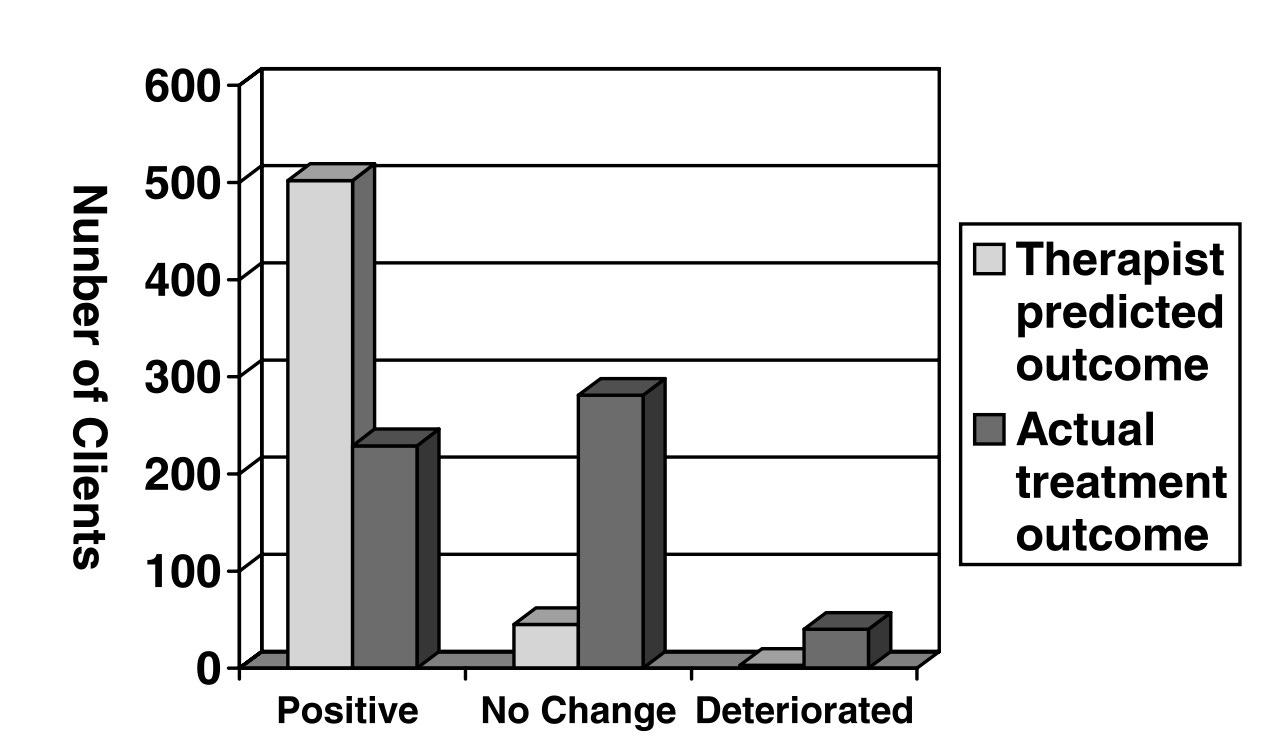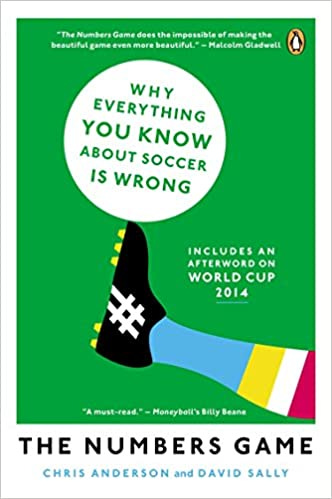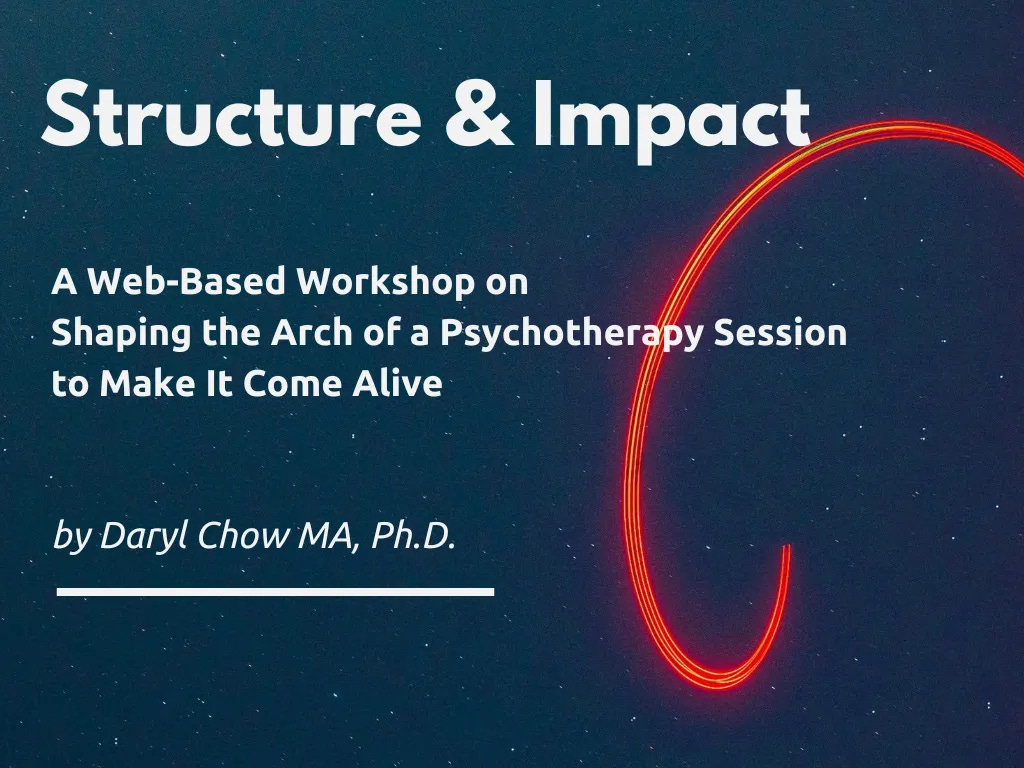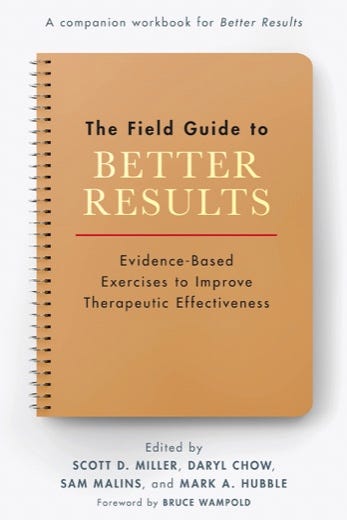Frontiers Friday #129: Dropout (Part III)⭕️ ⚽️
Do we work on the weakest or the strongest link? More from the edge of what we know on premature endings of treatment.
Everything we know about football—sorry, soccer—is wrong. According to the authors of The Numbers Game, Chris Anderson and David Sally raises a curious question: Is soccer a weakest link or a strongest link sport?
The authors argue that soccer is “vastly different from basketball, the most superstars-driven sport.”
Here’s Anderson and Sally:
Soccer is a weakest-link game where success is determined by whichever team makes the fewest mistakes, whether they are individual or collective…
This may seem obvious, but think of the consequence: if soccer is a weakest-link game, where success is determined not just by what you do well but what you don’t do badly, then it is by definition not a strongest-link game.
It does beg the question: Is psychotherapy a “weakest-link” or “strong-link” enterprise?
I don’t have a definitive answer on this, but think about this for a second. On average, less experienced practitioners and even para-professionals are able to obtain equivalent outcomes to more seasoned therapists.1
Why is that?
For a large part, much of the factors that make therapy work is our clients. I’m not trying to conjure up a platitude, but the evidence points towards the fact that client factors account for 80-87% of the outcomes2. In other words, even in the hands of an average therapists, a client can still find their way.
But, in order to be able to reliably achieve consistent results, I believe, is a different story.
See this essay: Peak Performance vs. Typical Performance
For now, I want us to pay attention to those who fall off our radar—our weakest link.
Here’s a recap of the past few week's missive on Dropout in psychotherapy:
FF127 Part I
FF128 Part II
Reducing Negative Variance and Increasing Positive Variance
This week, we cover 5 new recommendations. Especially for the large meta-analyses, I’ve done what I could to distill the key applicable findings from each of the studies mentioned.
👩👧Meta Analysis of Head-to-Head Comparisons: Treatment Refusal and Premature Termination in Psychotherapy, Pharmacotherapy, and Their Combination
Coming off the heels of their book, Premature Termination in Psychotherapy, as highlighted previously, Joshua Swift and team conducted a head-to-head meta analysis of 186 comparative trials. They wanted to find out if differences exist in treatment refusal and dropout from psychotherapy, pharmacotherapy, and their combination. Here's what they found:Key Grafs:
Clients who were assigned to pharmacotherapy were 1.76 times more likely to refuse treatment, and 1.2 times more likely to dropout, compared with clients who were assigned psychotherapy.
"Pharmacotherapy clients with anorexia/bulimia and depressive disorders dropped out at higher rates compared with psychotherapy clients with these disorders."
"No significant difference in rates of treatment refusal and premature termination between the single treatment (pharmacotherapy alone and psychotherapy alone) and the combined treatment (pharmacotherapy plus psychotherapy and psychotherapy plus pill placebo) conditions."
Across all studies, an average treatment refusal rate of 8.2% was found (DC: This is important to note. While the figure might seem small, the researchers noted that "it is important to remember that these were clients who already indicated that they were willing to be assigned to any of the treatment conditions." In other words, this was the percentage of people who first said yes, and then said no.)
Key (obvious, but not trivial) point: Client preference of types of treatment matter.
⭕️ Meta-Analysis: Patient Preference for Psychological vs Pharmacologic Treatment of Psychiatric Disorders
Though not exactly about dropout, this other meta-analysis dovetails with the previous recommendation regarding client preferences:75% of adults prefer psychological treatment compared to pharmacological treatment.
🧪 A Lab Test: A Lab Test and Algorithms for Identifying Clients at Risk for Treatment Failure
I particularly like this study design. I like to use this example in workshops to highlight how we miss the boat.
Here's how the study went:At the outset, the researchers told a bunch of therapists (N=48) some baserate information, that is, on average, about 8% of people get worse in treatment.
After treating 550 clients in total, the therapists were asked, how many got worse. The grand total number of clients they predicted got worse was 3.
In contrast, the actual outcome data indicated that out of the 550 clients, 40 deteriorated by the end of treatment. (Note: This was close to the baserate figure of 8%, compared to 3 out of 550).
However, out of the 3 the pracittioners predicted to have deteriorated, they were acurrate only with one of the 3 cases!
The researchers summed up, “We interpret these results as indicating that therapists tend to overpredict improvement and fail to recognize clients who worsen during therapy” (p. 161).

⭕️ Meta-Analysis: Are psychotherapies with more dropouts less effective?
At first, this 2018 study hit me as a strange research question. Turns out that the relationship between outcome and dropout is not so well established.
Here's are the 3 key findings:Individuals who dropped out began treatment more distressed than those who completed therapy (smalle average effect size),
Individuals who dropped out of therapy were more distressed at posttreatment than individuals who completed therapy (moderate average effect size) and
Treatments with higher rates of dropout were also less effective for the treatment completers.
5. ⏸ Words Worth Contemplating:
“A little knowledge of the greatest things makes us happier than a lot of knowledge of lesser things. ”
~ Variations attributed to Aristotle and St Thomas Aquinas.
Reflect
What is your weakest link?
Special Release:
I’ve not yet formally announced this, but next week, the highly subscribed course, Structure & Impact will be open for registration.
Start date: 10th of April, 2023
If you are interested to get your spot, simply reply this email to be on the waitlist.
Bulletin Board:
1. Hosts: Special thanks to New Zealand Psychological Society and their wonderful group, Mindmeet for hosting me. My sincere gratitude to Chrissy Gillmore for doing all of the backend planning over several months to make this happen.
2. Contributors: Thanks to those who are working on contributing writings to Frontiers of Psychotherapist Development (FPD). It means alot for this ongoing project that others get to hear from others besides myself.
3. Petition: Let's pause the giant AI experiment:
In a previous post, I talked about “Can ChatGPT Replace Psychotherapy”
WARM HUGS TO NEW PEOPLE WHO ARE AT THEIR FRONTIER!
If you've just joined us, I'm glad you can join us at the "bleeding edge." Feel free to check out the back catalogue of Frontiers of Psychotherapists Development (FPD). You might also want to go into specific topics in the FPD Archives like
And if you want to see past newsletters, the entire archive is now made available in substack.
See the most recent missives by topics:
Devotion to the Craft (6 Parts)
Caring for People in Organisations (3 Parts)
Clinical Supervision (3 Parts)
Feedback Informed Treatment (4 Parts)
Unintended Consequences (2 Parts)
Deep Learner (4 Parts)
Going Further with Deep Learner and The Use of Obsidian (6 Parts)
See What You Hear, Hear What You See (4 Parts)
Trauma (3 Parts)
Deliberate Practice (5 Parts)
Empathy (6 Parts)
Therapist Effects (2 Parts)
Client Point of View (4 Parts)
Tech Tools for Therapists (4 Parts)
Emotions (6 Parts)
Sensitivity (3 Parts)
Alliance (6 Parts)
Existence (6 Parts)
Play (4 Parts)
Humour (4 Parts)
For the general public, my other blog site is called FullCircles: Reflections on Living (site is currently going through spring cleaning)
By the way, don't feel bad if you want to unsubscribe to this newsletter. This might not be for you. The last thing I want is to add to the anxious clutter in our inboxes. And, please excuse any typos…
Note:
These newsletter are free, but many hours are spent handpicking the curated list… as well as writing the essays and recording the videos and podcasts that make it to Frontiers Friday . Amazon affiliate links, if any, are to help ease the costs. You can also support the sustenance of this work by picking up any of the books, dive deep into our courses, or gifting them to others.
Update: Substack has added a “PLEDGE” somewhere on the page. Thanks for those who are so kind to want to support my writings. I do not have a paid subscription option to Substack at this stage. Still, if you pledge, it means a great to me. Big thanks.
Daryl Chow Ph.D. is the author of The First Kiss, co-author of Better Results, and The Write to Recovery, Creating Impact, and the forthcoming book The Field Guide to Better Results .
The Field Guide to Better Results is coming out soon on 23rd of May’23!
Atkins, D. C., & Christensen, A. (2001). Is professional training worth the bother? A review of the impact of psychotherapy training on client outcome. Australian Psychologist, 36(2), 122–130;
Christensen, A., & Jacobson, N. S. (1994). Who (or what) can do psychotherapy: The status and challenge of nonprofessional therapies. Psychological Science, 5(1), 8–14. http://dx.doi.org/10.1111/j.1467-9280.1994.tb00606.x
Lambert, M. J., & Ogles, B. M. (2004). The efficacy and effectiveness of psychotherapy. In M. J. Lambert (Ed.), Bergin and Garfield’s handbook of psychotherapy and behavior change (5th ed., pp. 139–193). Wiley.
See Chapter 3: Client Factors in our forthcoming book, The Field Guide to Better Results.




